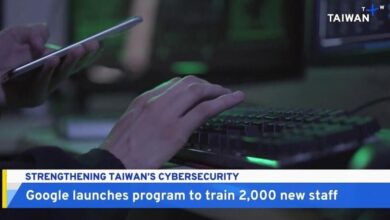Marcos okays 6-year cybersecurity plan

– 2 hours ago
President Ferdinand “Bongbong” Marcos AFP
MANILA, Philippines — Amid recent hacking attempts on government websites, President Marcos has adopted a six-year cybersecurity plan to bolster the security and resilience of the country’s cyberspace.
Executive Order No. 58 directed government agencies and government-owned and controlled corporations (GOCC) to adopt the National Cybersecurity Plan (NCSP) 2023-2028 as a “whole-of-nation road map for the integrated development and strategic direction of the country’s cybersecurity.”
Signed on Thursday, the issuance stressed the need for operational guidelines “toward a trusted, secure and resilient cyberspace for every Filipino.”
READ: Philippine Cybersecurity: How the country beats digital threats
“The strengthening of security and resilience of the Philippine cyberspace is one of the key strategies to ensure safety and security in cyber and physical spaces,” EO 58 said.
It also cited the need to “assess the vulnerabilities and risks of the country’s cybersecurity, and enhance existing mechanisms to deter cyberattacks, minimize cyber risks and increase cyber resiliency.”
The issuance came after several attempts starting early this year to hack into websites of the Philippine Coast Guard (PCG), National Coast Watch System, Department of Information and Communication Technology (DICT), Overseas Workers Welfare Administration and even Marcos’ official website.
READ: Hackers break into Coast Guard’s Facebook page anew
READ: DICT regains partial access to hacked DOST network
Traced back to China
The DICT said the attempts were foiled and traced to a location in China using the state-owned telco, China Unicom.
The PCG’s Facebook and X (formerly Twitter) accounts were hacked several times this year, with the latest hacking on March 29 involving its Facebook account.
EO 58 directed the DICT to adopt a system for the effective implementation, monitoring and review of the NCSP 2023-2028, and to provide technical assistance to other government agencies.
Created by the DICT, among the NCSP 2023-2028’s goals are to secure the government network infrastructure, reorganize the DICT’s cybersecurity bureau, develop a national cybersecurity threat database that can be accessed by the public and partner with telco firms for the early detection and mitigation of cybersecurity threats.
Public-private partnerships
The goals include partnering with digital online platforms to combat misinformation, promoting new legislative measures to strengthen cybersecurity, proactively monitoring threats to government cyberspace assets and securing the country’s submarine cable infrastructure.
The NCSP also aims to expand bilateral and multilateral international cooperation in cybersecurity, include cybersecurity career positions in the civil service, provide scholarships for higher education students studying cybersecurity and organize national and international hacking competitions, among others.
EO 58 tasked the DICT to submit a bi-annual report on the status and progress of the plan’s implementation to the President through the Office of the Executive Secretary and the National Cybersecurity Inter-Agency Committee.



